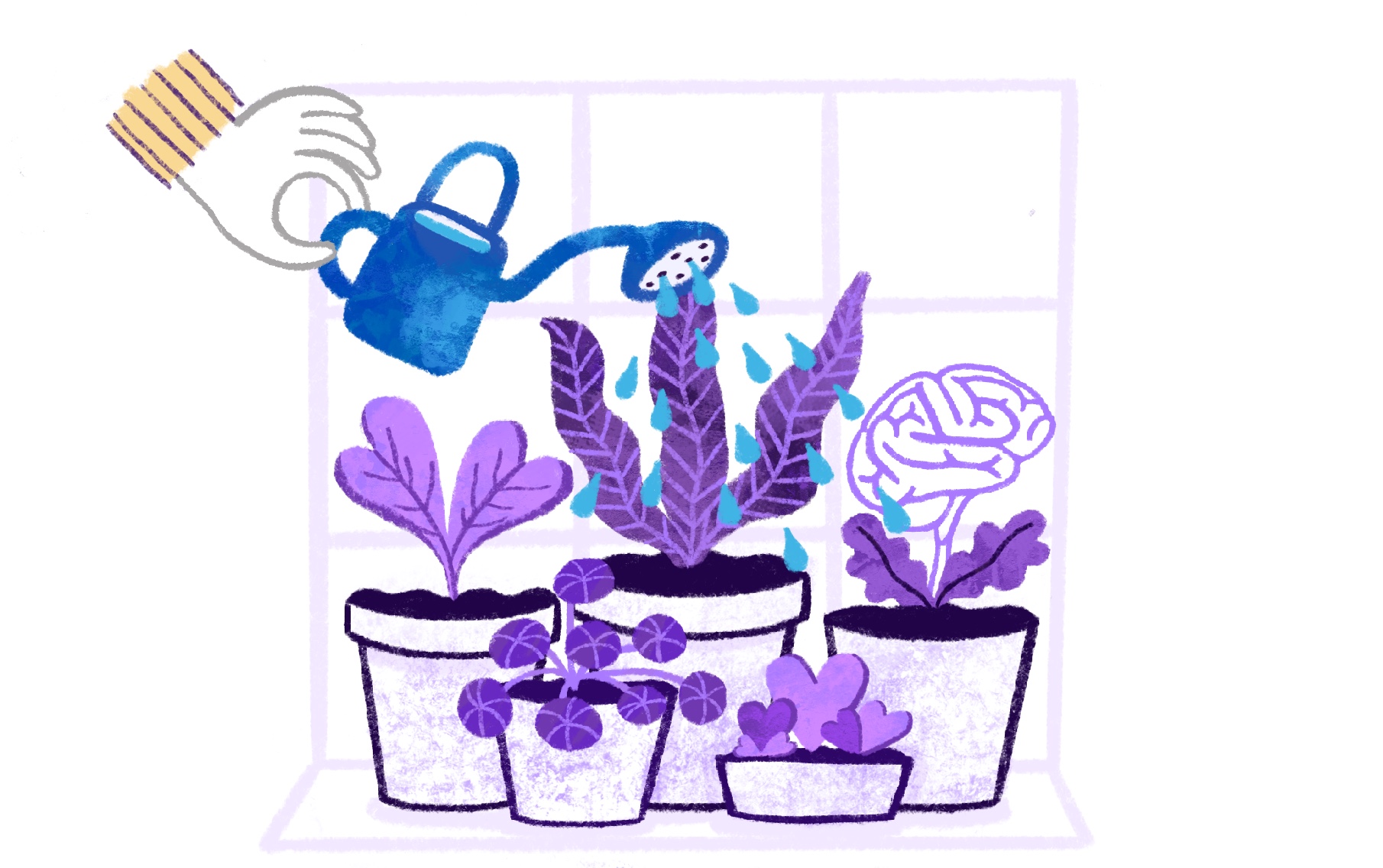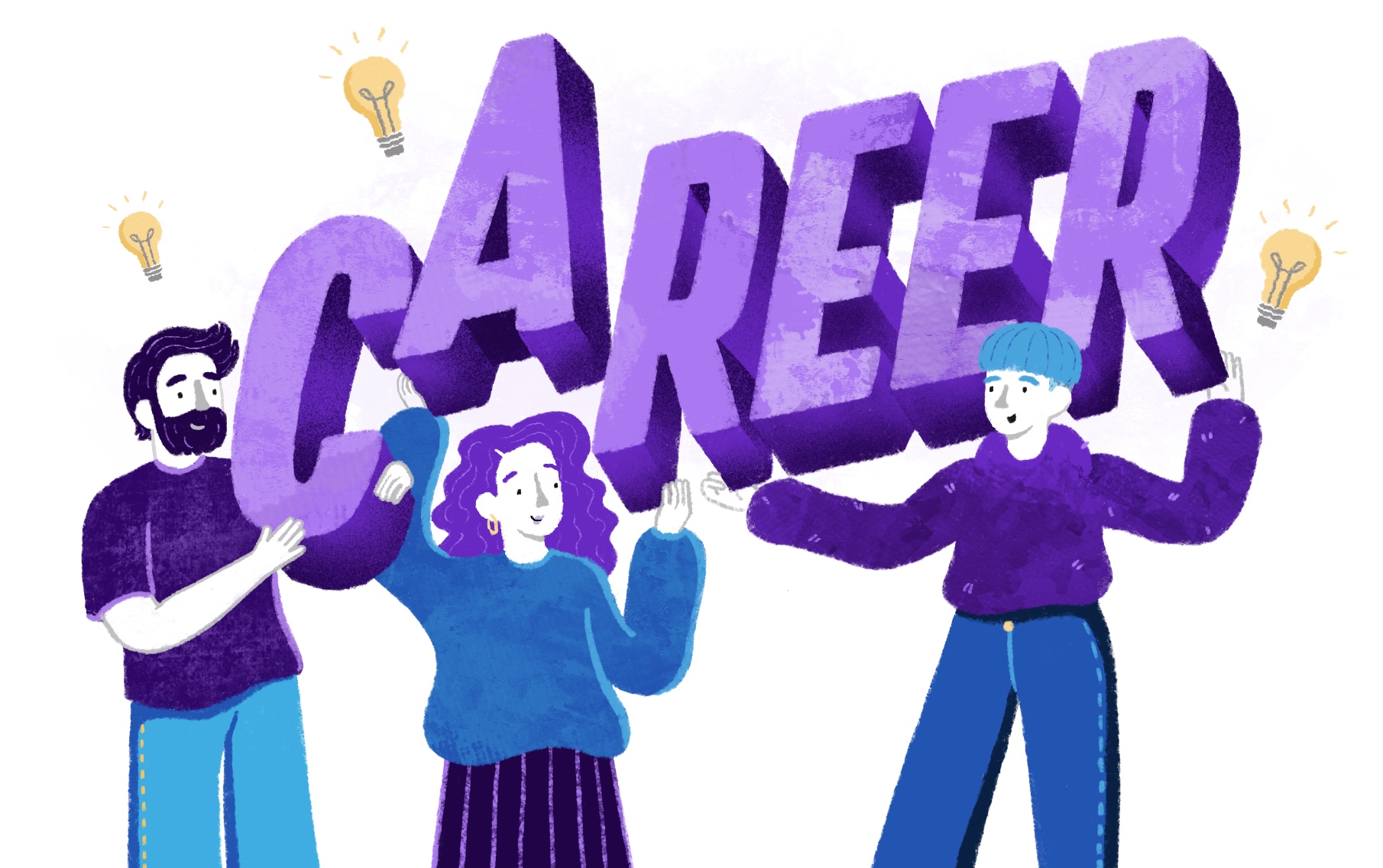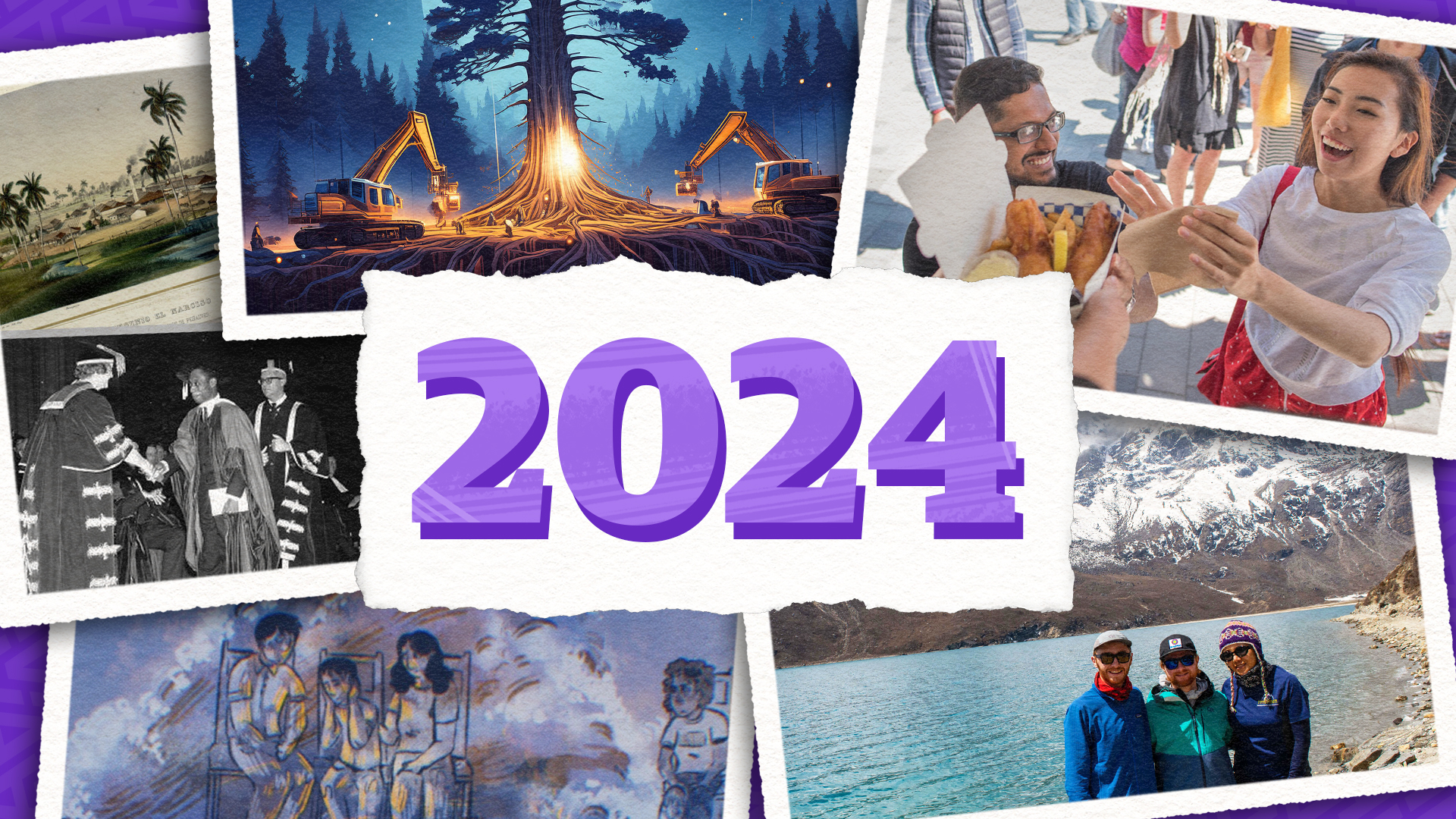


As of 2019, the non-profit sector in Canada employed 2.5 million people, which represents 12.8% of all jobs. Non-profit organizations include charities, volunteer services organizations, professional associations, and governmental agencies. Together, they strengthen communities by providing important services.
We spoke with three UBC Arts alumni currently working in non-profit organizations, who generously shared their advice for launching a career in non-profit organizations, for life in general, and for how to give back to communities in inspiring ways.
Find work that aligns with your values, and which you are invested in beyond material means.


In the last years of her undergraduate career, Carmen Watson (BA ‘19, Honours History, International Relations) prioritized finding work that was meaningful to her. “I made a conscious choice to work in fields that I believed in, supported, and wanted to contribute to their mandate. As much as I wanted a good salary right out of school, my priority was landing a job where I could feel proud of the work I did.” Following her own advice, Carmen now works as a Bilingual Equity & Inclusion Strategist for Bakau Consulting.
Kelsey Lee (BA ‘14, English Language & Literatures, History) says the key to succeeding in any non-profit role is making sure your heart is in it. “Non-profits are generally mission-oriented and goal-driven; in this sense, if your own values align with the goals and mission of the non-profit and you believe in the work that the organization does, the work that you do can be immensely rewarding,” says Kelsey. She’s currently the Community Programs Coordinator for Arts Umbrella.
Pursue a range of experiences in different career fields. You never know when skills you gain in a previous experience will come in handy in your next one.


Life isn’t linear, and neither is your career. It helps to start making connections by exploring diverse opportunities at UBC. “Go check out networking events hosted by your department, the UBC Centre for Student Involvement and Careers, and student associations. Check out Arts Co-op, internship, and volunteering opportunities. Ask your professors about potential research assistant roles. Reach out to alumni and others to make connections,” writes Phebe Ferrer (BA ‘18, International Relations. MA ‘19, Political Science). She continues to develop relationships and manage work on policy in her role as a Project Specialist for the Asia Pacific Foundation of Canada.
Carmen has worked and volunteered in a range of jobs and industries, both in and out of academia, and she emphasizes the importance of cultivating transferable skills. “I keep telling myself that I could learn new skills in each and every job, regardless of what that job actually was. A lot of my team management skills came from food service or customer service jobs, which helped me get my foot in the door for more senior roles in my career field,” she writes.
Learning doesn’t stop with graduation, and your undergraduate experiences form a strong foundation for your work life.


Carmen’s Honours History thesis focused on intersectional views on decolonization, and she worked with Indigenous feminist views and decolonial and anti-oppressive sources to acquire the language to understand social justice. “This constant process of learning and unlearning has helped shape my views on equity, anti-racism and social justice,” she says. ”The intersectional approach that I took throughout most of my undergrad is now a huge part of what I do for a living.”
“My Arts degree gave me the critical knowledge and skills I needed to land my first role at the Asia-Pacific Foundation,” says Phebe. “I was very interested in studying Southeast Asian migration and politics in both of these programs. A lot of what I learned then has served as valuable foundational knowledge for my current work. As a student, I also gained quantitative and qualitative research skills and skills in presenting and communicating my work to various audiences. The latter is particularly crucial, as I work with multiple stakeholders who have different areas and levels of expertise.”
Kelsey reminds us that skills acquired alongside classroom learning, such as flexibility, adaptability, and communicating with empathy and sensitivity are just as important to working in a non-profit. “I was fortunate to have spent most of my undergrad developing my personal and professional organization skills, thanks to my jobs, and the clubs and volunteer roles I was active in at UBC. Working in the non-profit field is a good fit for Arts grads because most non-profits will require their employees to be creative in their problem solving, and to work together to discuss solutions that are amenable to all.”
Slow down and honour your boundaries. Perfectionism is overrated.


Non-profit work can feel especially meaningful when it aligns with your values, but when work is so close to your heart, there’s also a risk for burn-out. Letting go of perfectionism has been helpful for Carmen. “I’ve really tried to start normalizing this idea that I’m never going to get everything right or perfect. I am still working on letting go of this idea that my personal value is tied to my output.”
For Kelsey, honouring your boundaries also means understanding and working around what you can and cannot change about your work environment. “When it comes to striking a balance between school and work, I forecast and plan around busy periods and deadlines, and then work backwards from these points – breaking things down into multiple steps and then putting those steps into my calendar to keep me on track with my targets. I’ve become increasingly protective of my personal time, which also helps me with maintaining balance in my life.”
Lastly, when it feels like there’s too much pressure to do everything all at once, Carmen makes a point of slowing down. “It sounds counterintuitive, but I really do think we need to slow down our pace if we want to get to where we’re going. I find that I have to be very honest with myself when it comes to questions of emotional capacity, saying ’no’, and taking breaks to care for myself.”
Surround yourself with a network of friends, peers, and mentors who have your best interests at heart.


Having a good support network of mentors, friends, and peers can be beneficial to your mental health and your career. “Most of the jobs I’ve landed have been thanks to amazing folks pointing me in the right directions and frankly, steering me away from others,” shares Carmen.
“As a former international student, I find networking helps me meet new people and potentially friends who can help introduce me to different organizations and give me advice on job-hunting,” writes Phebe. “My graduate supervisor, Dr. Cesi Cruz, was a significant mentor for me as a Filipina student and the only racialized woman in my cohort. She gave me advice and encouragement for my job search, and was also one of my references for my first role at the Asia Pacific Foundation of Canada. It’s very important to know that you’re not going through this alone.”
Funding constraints are often a challenge and a barrier in non-profit work, but creativity and a willingness to work with others will help you succeed.



A career in the non-profit sector can be rewarding, but it often means working with limited resources to accomplish big projects. Additionally, a reliance on external funding from donors, grants, and sponsorships makes organizations accountable to the expectations of their funders.
Kelsey reminds us that as with any job, it’s important to manage your expectations. “You may come with a plethora of ideas for programs and initiatives at a non-profit, but realize that with the funding constraints, the organization is not always in a position to support you in realizing those projects immediately.” Ultimately, being a team player who is prepared to contribute is the key to making it work. “There is a lot of opportunity for co-creation and collaboration across different departments within non-profits; your work is rarely, if ever, completed in a silo.”


